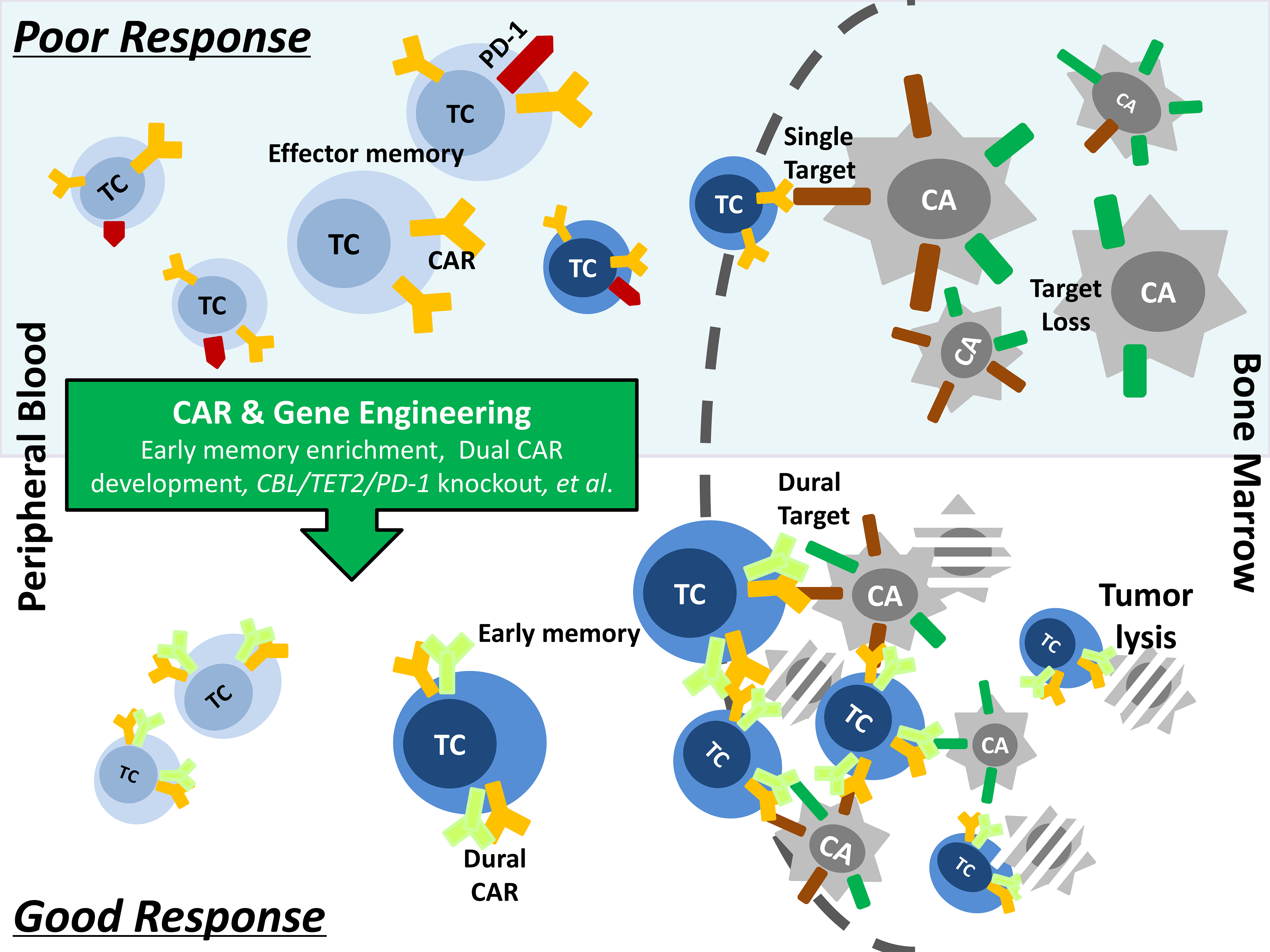Figure 3.

Current strategies to overcome the hurdles of poor response to autologous CAR-T-cell therapy. Several factors, such as low frequencies of early memory CAR-T-cells in the infusion product, over-expression of checkpoint inhibitory molecules on the apheresis T-cells and loss of target antigen on the tumor, have been shown to contribute to the lack of efficacy of CAR-T-cells in many patients. Optimizing the manufacturing process by laboratory-based engineering approaches, such as memory T-cells enrichment, dural CAR development and specific gene editing, is essential to improve the quality of CAR-T-cell product, thereby enhancing its capacity of tumor clearance and in vivo persistence.
